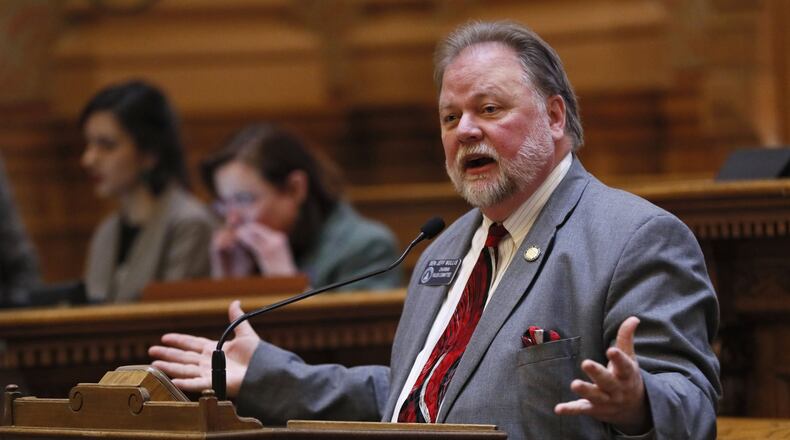A secret recording last year of GOP gubernatorial front-runner Casey Cagle helped destroy the lieutenant governor's chances of winning, and now a key supporter in the Georgia Senate wants the law changed to make such tapings illegal.
The recording, made by failed Republican gubernatorial candidate Clay Tippins, was released during the nine-week runoff election between Cagle and Brian Kemp. In the recording, Cagle said he supported "bad" policy because it would hurt another candidate in the race.
The recording was legal because in Georgia only one person in a conversation has to agree to it. Kemp trounced Cagle in the GOP runoff and eventually won the general election.
Senate Rules Chairman Jeff Mullis, R-Chickamauga, said he believes all parties should be aware if they are being recorded. Mullis, like many Republicans in the Senate, backed Cagle's 2018 campaign, contributing $10,500 to it.
“If I record a conversation, it’s to protect myself,” he said. “But if somebody uses a recording for malicious reasons, that’s not proper.”
Mullis said the bill was “in no way related” to the recording of Cagle, even though he has not proposed the bill in the past. He said the legislation aims to ensure that everyone can enjoy “their right to privacy.”
“That whole (Cagle) thing made a lot of people wary, but it doesn’t have anything to do with that,” Mullis said. “Don’t people have the right to know someone is recording them?”
Georgia law requires one person to know when someone is "intercepting a wire, oral or electronic communication." Mullis' proposal, Senate Bill 59, would require all parties to give "prior consent" to being recorded.
It’s something that Georgia First Amendment Foundation President Richard T. Griffiths said would be “very bad for the public.”
Not only would it have an impact on investigative journalism, it would keep people from being able to pursue legal action against people trying to commit fraud over the phone, Griffiths said.
People get “assaulted by dozens and dozens of these robocalls,” he said. “Under this provision, you would not be allowed to record those calls to pursue legal action if you were ripped off.”
Christopher Bruce, legislative director of the American Civil Liberties Union of Georgia, said their organization was keeping an eye on the bill’s development “to make sure that this legislation does not infringe on the constitutional rights of Georgians.”
Griffiths said the bill would also hurt the public at large by blocking journalists from exposing the bad acts of those in government and the business world.
“Certainly folks who have done illegal things to people need to be brought to light by this kind of journalism,” he said. “To essentially block that to avoid embarrassing public officials in the future is a very bad precedent to set.”
Stay on top of what's happening in Georgia government and politics at ajc.com/news/georgia-government/.
About the Author
Keep Reading
The Latest
Featured




